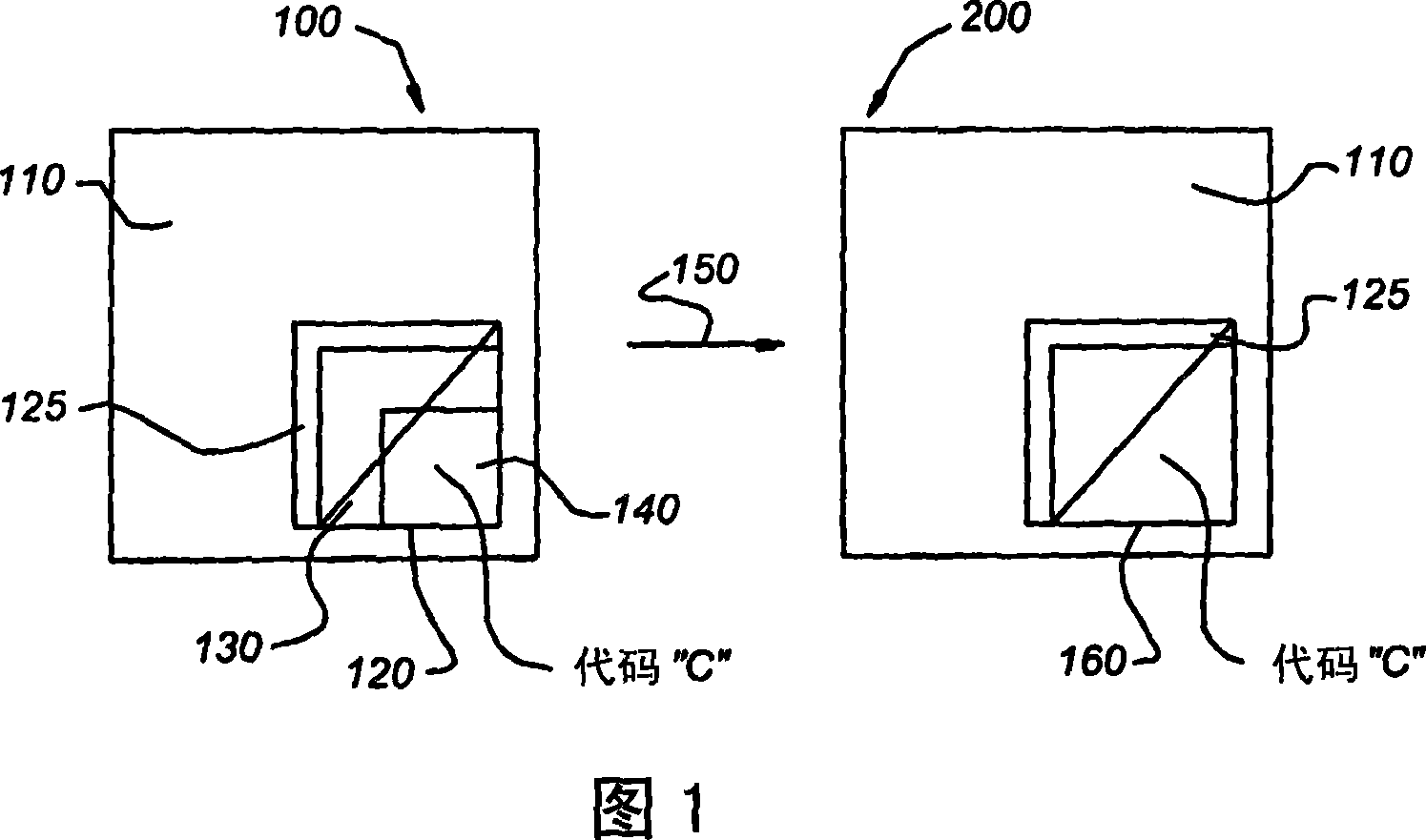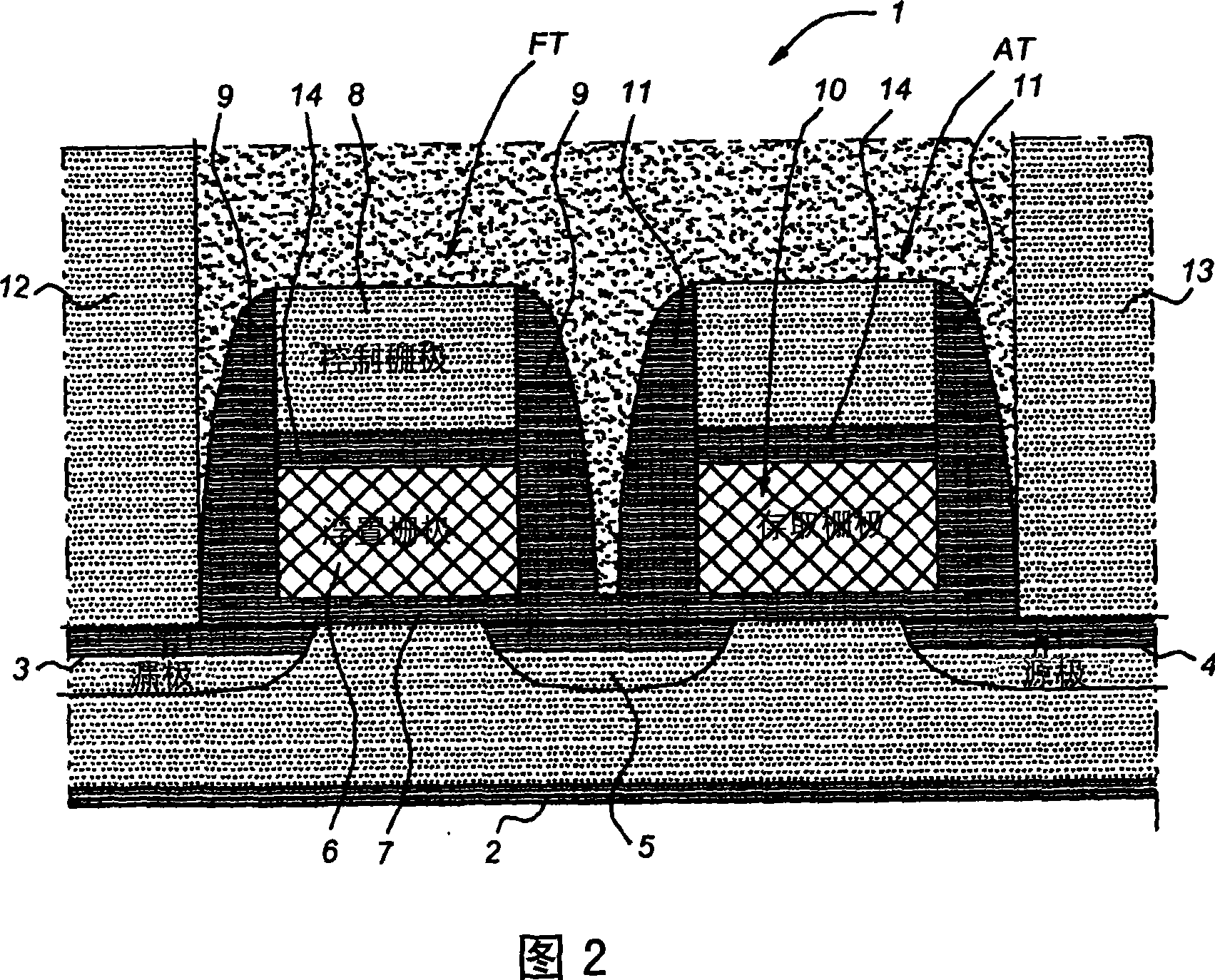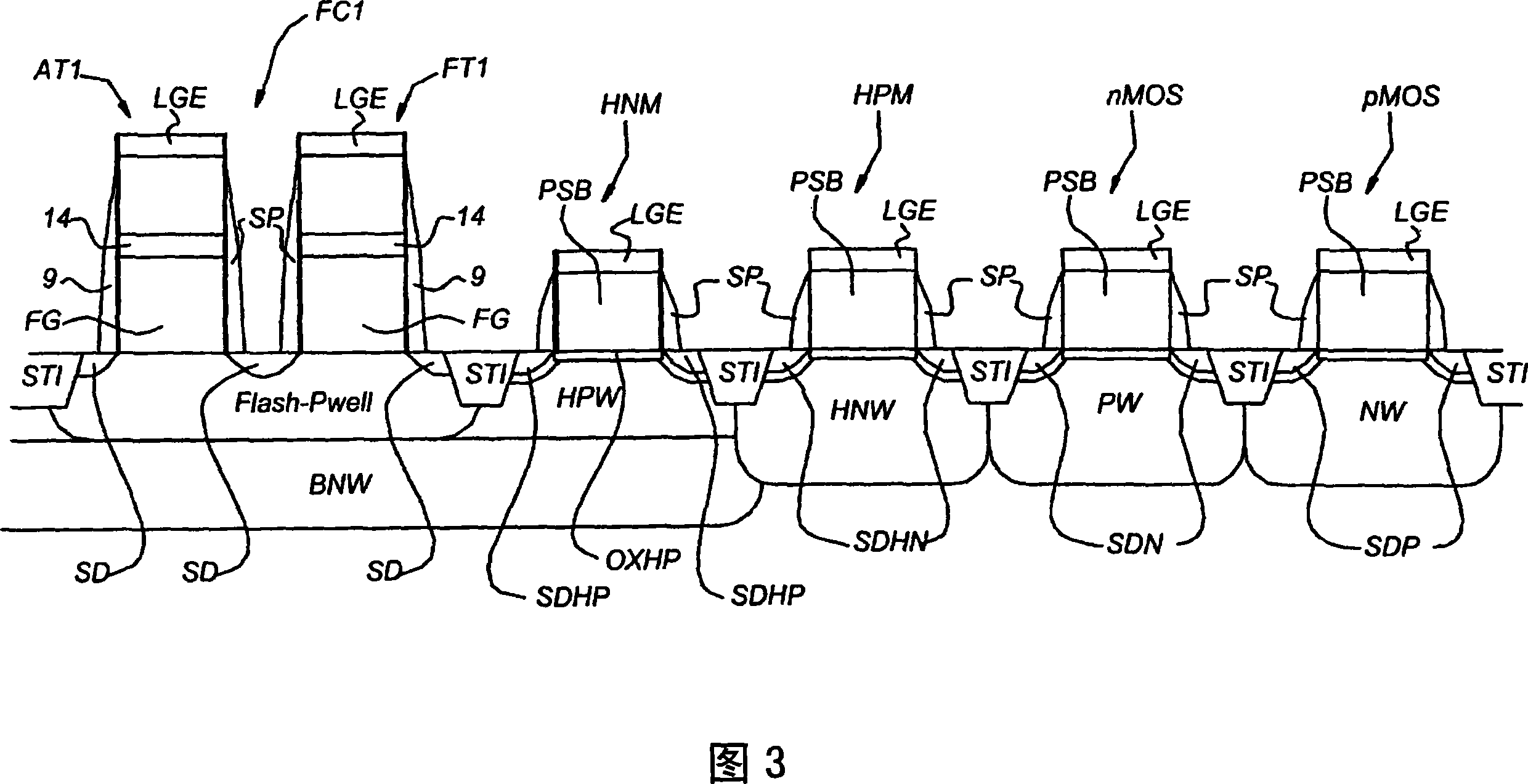Flash- and rom-memory
A memory cell, RM2 technology, used in flash and read-only (ROM) memory
- Summary
- Abstract
- Description
- Claims
- Application Information
AI Technical Summary
Problems solved by technology
Method used
Image
Examples
Embodiment Construction
[0054] Figure 1 schematically shows the Flash-ROM conversion of an SOC device.
[0055] The first SOC device 100 includes a device portion 110 produced by baseline technology. Embedded in the device portion 110 is a Flash portion 120 . Symbolically, the wiring scheme between device portion 110 and Flash portion 120 is represented by region 125 . The flash memory part 120 includes a peripheral circuit 130 and a flash memory part 140 . The peripheral circuit 130 is connected to the wiring scheme 125 of the device part 110 at one end and connected to the flash memory part 140 at the other end. The flash memory part 140 includes a plurality of flash memory cells, and the flash memory part 140 is configured to store program code C in the plurality of flash memory cells. The program code C refers to a program that provides functions to the SOC device 100 during operation of the SOC device 100 .
[0056] The peripheral circuit 130 includes a high voltage driving circuit configure...
PUM
 Login to View More
Login to View More Abstract
Description
Claims
Application Information
 Login to View More
Login to View More - R&D
- Intellectual Property
- Life Sciences
- Materials
- Tech Scout
- Unparalleled Data Quality
- Higher Quality Content
- 60% Fewer Hallucinations
Browse by: Latest US Patents, China's latest patents, Technical Efficacy Thesaurus, Application Domain, Technology Topic, Popular Technical Reports.
© 2025 PatSnap. All rights reserved.Legal|Privacy policy|Modern Slavery Act Transparency Statement|Sitemap|About US| Contact US: help@patsnap.com



